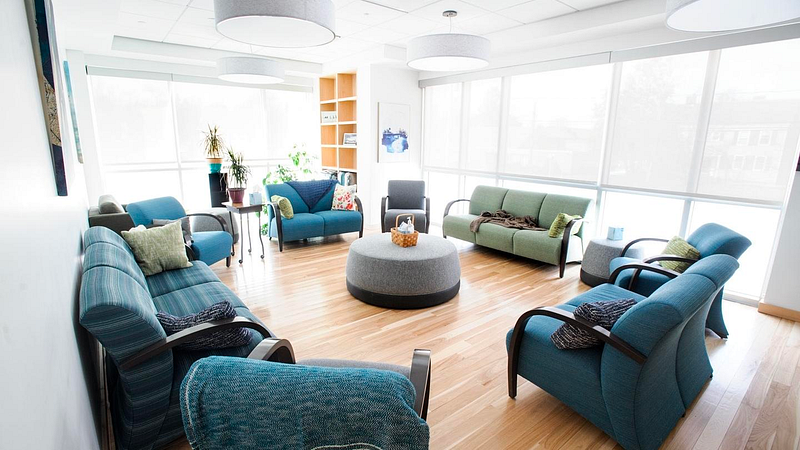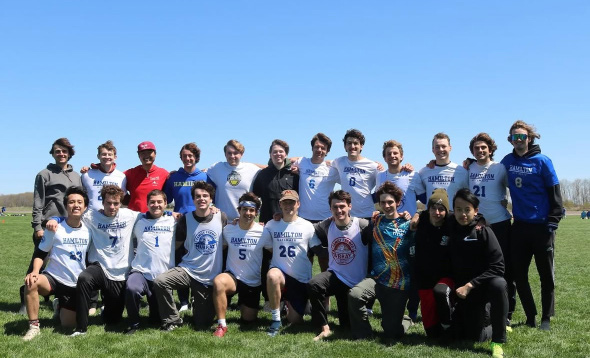
With the close of any semester comes fast-approaching deadlines that can often lead to increased stress levels or burnout. Hamilton’s Peer Counselor program is a listening service that can be extremely helpful to those who need an extra layer of support.
Co-supervisor of the Peer Counseling program David Walden remarks, “Maybe there are students who think ‘I don’t know that my issue needs a licensed therapist’…Or maybe there is something I am navigating that a student here [could help me with], who knows the landscape of the situation. Or maybe I am dealing with [the] anxiety of talking to peers. This is a little more of a safe place to try new things and learn new skills.” Peer Counselor Anthony Thompson ’23 adds, “If you need someone to yell, cry, scream with, I feel [like this is] a good service to use.”
Thompson described that meetings with Peer Counselors are usually informal, involving giving the student, or “client,” a tour of the space, letting them pick the room they feel most comfortable with. He explained that their job is to let “the student take the reins and let them talk about what they want to talk about.” He described that he does ask some questions, but essentially goes with what the student wants and lets them lead discussions.
Co-supervisor of Peer Counseling Katelyn Cowen, highlighted that the range of majors and backgrounds of the group of counselors means that the diverse set of client needs are met with a diverse set of counselor expertise. Thompson explained that he applied to become a Peer Counselor because, “[the field of counseling] is something that I want to go into later in life and so having that experience and being able to provide this help for students is very impactful for me.”
Fellow Peer Counselor Mac Behrhorst ’23 described his belief that his listening skills have benefited him in this role. He described his appreciation of the chance to strengthen his communication skills, and noted that “the biggest [skill I’ve gained] is listening, just active listening. I think it has made me a more curious person and better in conversation.” Behrhorst explained how being a Peer Counselor has made him more reflective of and attentive during those conversations and more aware of his role in a situation, “It makes me more conscious of a conversation like ‘How is this conversation going? Am I dominating the conversation? Am I showing enough interest in what this person has to say?’” he said.
At a rate of roughly 40 percent, Hamilton ranks among the top colleges by percent of the student body who utilizes the mental health resources offered by the college, which Walden described as a success in terms of outreach to the student body. This statistic is according to Walden, who serves as the director of the Counseling Center.
One of the strengths of Hamilton’s Counseling Center is the range of resources. Walden describes some notable features of the center: “On the clinical side, we have individual therapy, group therapy, psychiatric services, and dietician services. On the wellness side, [the Center offers] community pantry, mindful movement, mindful music, the acupuncture services, [and] occasionally sound healing services.” Walden says he would place Peer Counseling in a therapy-adjacent space, since clients do not speak with licensed therapists, but appointments tend to be therapeutic.
Cowen works with Peer Counselors to organize events such as the recent food truck they brought to campus and the sleep webinar that took place on November 30th. The “Oh Crepe and Waffles” food truck will be at the Burke Library on Dec 11. An email described the event as an opportunity to “take a break, feed your body, and connect with the PC’s!” Cowen described the impetus for the sleep webinar, saying that a Peer Counselor told her that addressing sleep issues would benefit the student body. She described the counselor saying that, in their experience many students do not fully understand the importance of sleep health, and as such the event filled an important niche. Cowen says that their events so far have generated significant engagement, and that the program aims to continue hosting events that educate the Hamilton community about mental health.
Walden encouraged students who think a listening service might be helpful but are hesitant, to “just try it out.” He continued that, “There’s no pressure to continue, there’s no pressure to make it anything more than a good positive resource for you.” Peer Counselor Thompson adds, He explained that different students have different relationships with Peer Counselors, where some utilize them nearly weekly, whereas others use them only once. Regardless of how many visits, Thompson said that, “Knowing we helped them through that specific incident feels good.”
Walden also notes that the Peer Counselors appreciate when students utilize the resource, recalling how counselors tell him, “this is really energizing for me to do. It’s an opportunity to give back, to do something meaningful to help someone and change their life in a positive way.”














